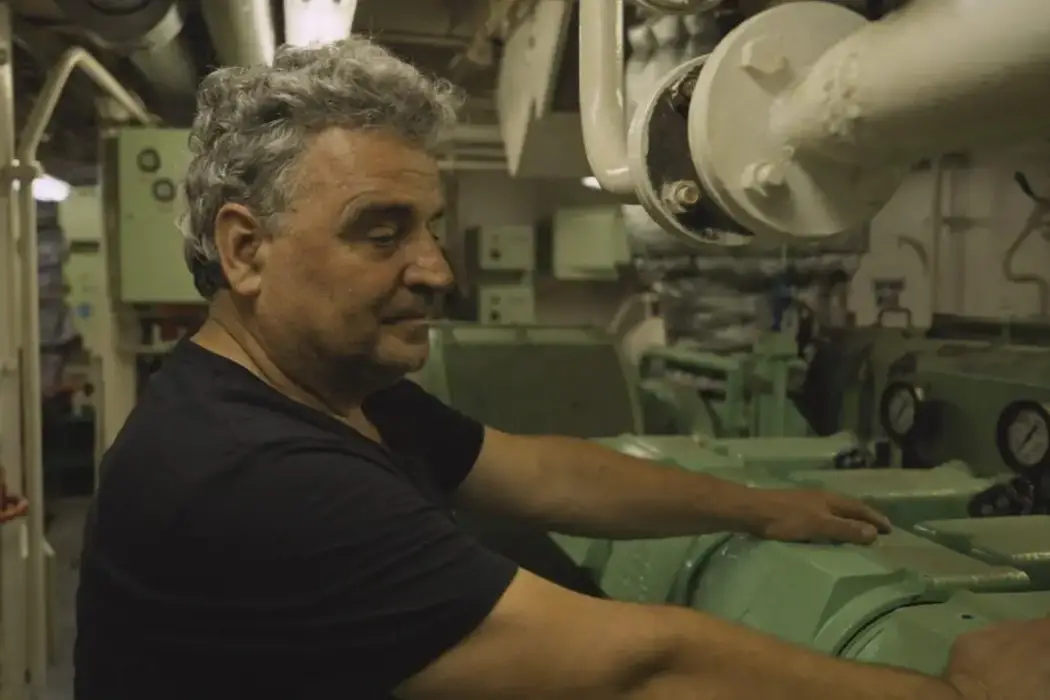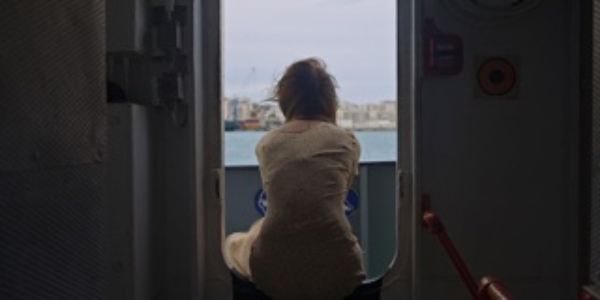ALEXANDER: Finding Courage for Family

Hello, I'm Coby Kiefert! I am a reviewer from Savannah,…
I’ve never seen a documentary quite like Alexander, that started off so strong and vividly emotional and then settled into repetition and mediocrity so quickly. It’s almost like a tug-of-war: Do I tell you to see the film once it’s released because of how well it began, and the touching story at its core? Or, do I steer you away from the film entirely? It’s a mess.
What’s It About?

The premise follows a middle-aged man named Alexander Gruda, who in 1990 hijacked a warship in order to steer himself and his family to freedom. Now working as a concierge at a New York hotel, Alexander and his old friends/comrades are interviewed while they reflect on the details of the experience, how it affected each of them, versus where they are now.
What Works About It?
Alexander works best in its first third, as it establishes the current circumstances of its titular protagonist, whilst simultaneously capturing the essence of the hardship it took to achieve that end goal. We merely observe Alexander as he goes about his daily life at work, talks to his wife, giving us the ordinary world. We also get a glimpse of an old portrait photo of Alexander’s late daughter, a telling hint at what’s to come once we get more of the details of his previous piracy.

As we jump between the points of view of Alexander and his various former cohorts, it smartly avoids us becoming monotonously, narrowly locked in to one perspective. When we meet him, his friend Marjan Kola, who lives in Australia, waxes about his life choices after they took over that naval ship. He often seems like a drifter, quietly but bitterly going wherever the wind blows him, with only a vague idea of his ambitions. Even though Alexander helped gain him his freedom, Marjan stands in direct contrast to our main subject’s specific and direct goal that he set his mind to achieving, and succeeded at. It’s a poignant balance.
I also appreciated how well Luke Yalva‘s editing paced the recounting of Alexander’s story. We get bits and pieces of what happened, little by little, as we also explore the subjects’ present lives, which makes the overarching impact of those details more powerful.
Where Does It Go Wrong?

Sadly, director Ardit Sadiku doesn’t delve into Alexander’s story through any other method than interviews. The movie gradually devolves into nothing but switching back and forth between talking heads. On top of that, once we’ve gotten the whole scoop about Alexander’s mission to provide a better life for his clan, about a third of it just consists of repetitively discussing the outcome of said mission, nothing more. For a movie with a mere 80-minute runtime, it feels like it overstays its welcome. An absolute max of 60 minutes might’ve helped the film find a tighter, more focused direction as it came to a head.
How Could This Have Been Improved?
I think that, to introduce more variety to the storytelling, having the actual mission reenacted throughout would’ve made us really feel the weight of what was happening, rather than just hearing about it. Unless they had some alternative archival footage they chose not to show us, this would’ve been their best bet to keep us fully engaged with the emotions of the people we were watching. As is, I quickly grew tired of the experience, from which I could tell this monotony had done an enormous disservice to such a moving premise.
Should You Go See It?
Here’s where I find myself torn as a critic. On the one hand, I don’t think this movie works, particularly from a structural standpoint. It’s too repetitious, and only talks about the past incident at its center rather than showing us, which keeps us at arm’s length on an emotional level. On the other hand, it tells a poignant tale with much respect, care and raw feeling from its subjects. Ultimately, I would not personally recommend this, nor will I watch it again going forth. But, if you were to choose to see it once it receives a theatrical release, I would not do anything to stop you. Just know what kind of film you’re getting into.
Does content like this matter to you?
Become a Member and support film journalism. Unlock access to all of Film Inquiry`s great articles. Join a community of like-minded readers who are passionate about cinema - get access to our private members Network, give back to independent filmmakers, and more.
Hello, I'm Coby Kiefert! I am a reviewer from Savannah, GA. I'm most passionate about independent horror, dark comedy, and teen coming-of-age films. However, I'm open to all types of cinema. I'm excited to be writing for this website.












